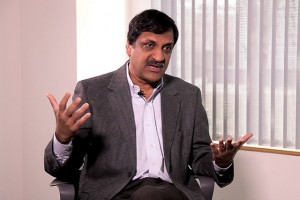Peer Instruction for Active Learning
Physicist Eric Mazur on beginners' difficulties, teaching each other and making sense of information
What was the platform of the Internet designed for? What is the core characteristic of this packet delivery service? Senior Research Scientist at MIT Computer Science and Artificial Intelligence Laboratory David Clark explains the generality principle of the Internet and predicts its future.
When talking about the Internet it’s useful to have two different definitions of what the Internet is. If you are a user of the Internet, you tend to think about the whole experience as being the Internet: “I’m using the Web, I’m sending e-mail, I’m doing instant messaging.” But if you’re an engineer building the Internet, we make a strong distinction between the Internet and the applications that run on top of it. The Internet at its simplest is just a mechanism for moving data from one point to another. You put the data in one side – it comes out over here. That’s all the Internet is: we break the data into packets, we put addresses on the front, we forward them to this little computers called “routers”, and everything else – the applications – run on top of the Internet.
There are some implications of generality that are very important to understand. One of them is, of course, that the Internet doesn’t know what you’re doing. You can run any application you want, all it does is forward the packets. Why does this matter? Well, one of the issues is, of course, security. Since the Internet though it doesn’t know what you’re doing, it can distinguish between good behavior and bad behavior. In fact, the consequence of any general platform is that it cannot prevent bad behavior. Bad behavior arises and therefore has to be controlled inside the applications.
There is a very strong interface, very strong definition between the Internet as this data carriage platform and the applications on top. What are the implications of that? When we started designing the Internet we thought those were technical implications. What we later figured out was we were defining the structure of the industry. Internet service providers are not in the application business. They’d love to be in the application business, they can make more money that way. But they are in the packet carriage business, and other companies: Facebook, Google, companies like that are in the application business.

Physicist Eric Mazur on beginners' difficulties, teaching each other and making sense of information

Media Scientist Renira Rampazzo Gambarato on multiplatform production, crossmedia and the world of Harry Potte...

MIT Prof. Anant Agarwal on parallel computing, problems of processors' communication, and research funding